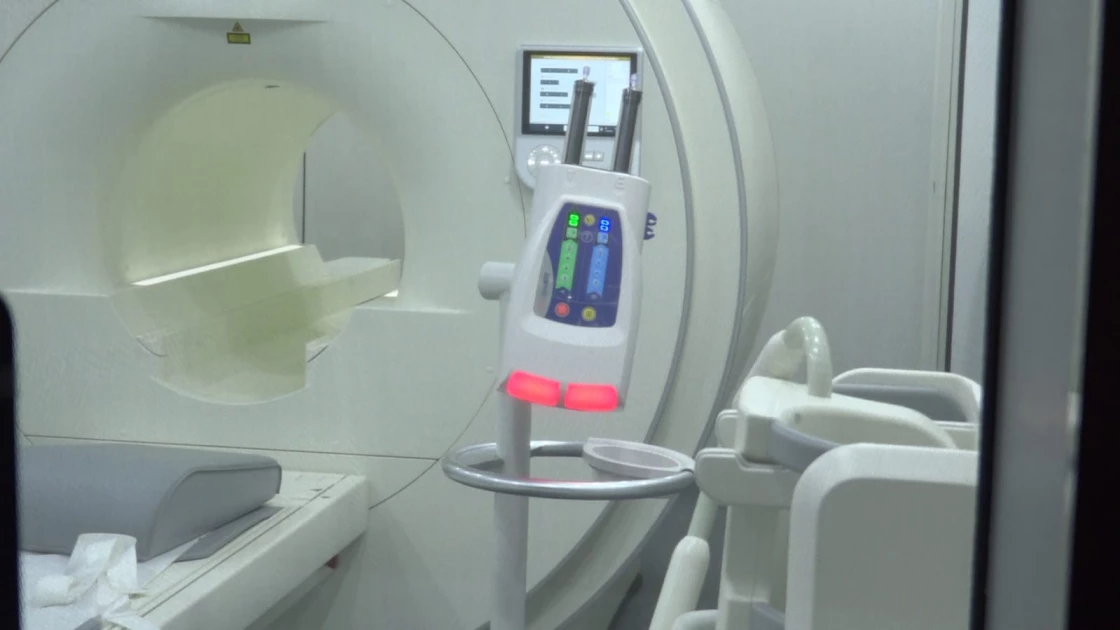AI-powered MRI scanners revolutionizing healthcare in Kenya


Audio By Vocalize
Technological advancements in medical imaging are significantly transforming healthcare services across Kenya, experts have said.
They note that the latest generation of
Magnetic Resonance Imaging (MRI) machines, now enhanced with Artificial
Intelligence (AI), are speeding up scan times, improving patient comfort, and
increasing diagnostic accuracy through clearer and more detailed imaging.
Led by Dr Daniel Somba, the Managing
Director and Chief Radiologist at MIC Imaging Center in Thika, the experts
emphasised that AI-driven imaging technology is elevating diagnostic confidence
and enhancing treatment planning.
“MRI scanners have been transformative for
healthcare, helping doctors diagnose a wide range of conditions non-invasively.
This new low-field technology makes MRI scans easier, faster, and more
affordable, enabling more patients to access quality care while easing the
burden on healthcare systems,” said Dr. Somba.
He spoke during the unveiling of a new 72-channel
MRI scanner at the facility — the first of its kind in the region — a milestone
expected to bring relief to residents of central Kenya who have long struggled
with limited access to advanced imaging services.
The new scanner features stronger magnetic
fields that produce higher-resolution images, enabling doctors to detect
smaller and more complex abnormalities, including in neurological and joint
cases.
Highly sensitive and radiation-free, the
machine is safe for patients of all ages, including children. Scans take only a
few minutes and can be repeated as often as necessary to monitor disease
progression.
Access to MRI services in Kenya remains
limited and highly centralised. The country has just about 50 MRI scanners —
roughly one per million people — with most concentrated in Nairobi and a few
major towns.
Dr Somba noted that rural areas, where
nearly 70% of Kenyans live, remain severely underserved. The shortage of
specialists compounds the challenge, with only one radiologist per million
people, far below the global recommendation of 10 per 100,000.
According to Dr Somba, advanced imaging
technologies are now facilitating early disease detection and promoting evidence-based
treatment, saving more lives and resources.
“These advancements are enabling doctors to
detect conditions earlier and plan treatments more effectively. It has
significantly improved patient outcomes and reduced delays in care,” he said.
He added that the new technology has greatly
increased patient throughput. The new scanner at MIC Imaging Center can serve up
to 80 patients a day, compared to just 20 using older machines.
The equipment can perform a wide range of
scans, including brain, spine, liver, prostate, breast, abdominal, and pelvic
imaging, among others.
Joseph Mbai, General Manager for Health at Equity
Group, commended private healthcare providers for their role in expanding
access to advanced medical technology.
“Private facilities are instrumental in
enhancing healthcare delivery by investing in modern, state-of-the-art
equipment. However, the cost remains a major barrier. Installing a high-end MRI
scanner like this one costs no less than Ksh.200 million,” Mbai said.
He urged the government to ensure that the Social
Health Authority (SHA) includes coverage for chronic illnesses and specialised
diagnostics such as MRI scans, to ease the financial burden on families.
Currently, patients pay between KSh 18,000
and KSh 32,000 per scan — costs that remain out of reach for many, particularly
low-income households.
A local resident, Brian Muindi (name
unconfirmed), welcomed the installation of the new MRI machine, saying it will
save patients the long journeys and waiting times previously required to access
services in Nairobi.
“This will save patients both time and money
while enabling early diagnosis and treatment. I urge the government to include
MRI services under the national health insurance scheme to make them more
affordable,” he said.
The unveiling of the 72-channel MRI scanner marks a significant step toward improving access to advanced diagnostic care in Kenya, signalling a broader shift toward technology-driven healthcare solutions that are faster, safer, and more inclusive.


Leave a Comment